Overview
Police officers work in an environment that is often stressful and physically demanding which means our body’s natural response is to produce hormones such as adrenaline and cortisol. When this natural response becomes unregulated due to long term exposure to stress it can and sometimes does lead to anxiety.
Likewise, family members of police officers may also feel stressed when living with a loved one who is working long hours, rotating shifts and who may be experiencing trauma in the workplace. The added pressures of a partner being away from home in possibly dangerous working environments can impact on family via regularly feeling worried and covering extra home commitments which add further stress on partners and sometimes children.

Feelings of stress will accordingly come and go and may dissipate when the body moves into the rest and restore mode where the parasympathetic nervous system kicks in. Simply stopping, taking a few long slow breaths, meditating or talking about the stressful situation or thoughts to a trusted colleague, friend or family member may resolve the physical feelings of anxiety however the impact of everyday work life combined with family issues and life pressures may result in the need to seek professional help.
There are several avenues to seeking support, attending your GP at the first instance and discussing the issues around work life balance will assist your doctor to assess what type of support may be required. A referral via a mental health plan is an option to commence a series of counselling sessions preferably with a suitably trauma informed clinician who understands police culture.
Otherwise, contacting your state jurisdiction Employee Assistance Program can also assist with counselling or making an appointment to speak with your state chaplaincy service can be helpful.
To identify when anxiety may be an issue and it might be appropriate to seek further assistance the following list of symptoms and signs can be helpful to look out for:
- Difficulty concentrating
- Unnecessary worries or concerns that continue to pop into your mind
- Difficulty falling to sleep or staying asleep
- A general feeling of being unable to relax
- Keeping yourself busy all the time
- Avoiding places or people
- Feeling irritable, annoyed or restless
- Avoiding family and friends
- Feeling shaky or experiencing sweaty palms
- Frequent headaches, migraines or muscle aches
- Feeling your heart racing
- Shortness of breath
- Panic attacks
- Feelings of impending doom
Step-By-Step
When should I consider seeing my GP?

Anxiety starts to impact your daily work and home life
Feelings of panic become noticeable to the point where you can't relax or you feel you need to run away
You notice your heart pounding, shortness of breath and a general feeling of impending doom
What is the next steps when seeing my GP?

Making an appointment with your GP and explaining your symptoms will assist your Doctor to understand your feelings and what may be the underlying cause
Your GP will generally ask you to fill out a number of questionnaires to assist with assessing your condition
You may then be referred to an appropriate health clinician for further diagnosis, medication or counselling
In the meantime, it may help to reduce Caffeine, Alcohol and Non Prescription Medication
Content for anxiety or depression
 17 Nov 2021
17 Nov 2021
Man Therapy
Resources including videos on topics that effect men or those with a man in their life they are concerned about. Topics include, addictions, anxiety, depression, divorce, relationship and sex, teenage children’s issues, sleep, trauma, grief and anger. First responders are included in videos and resources.
 17 Nov 2021
17 Nov 2021
Mensline Australia
Mensline Australia offers 24/7 counselling support via telephone and online to men across Australia. Resources and information is also available to enhance relationships, help with addictions, understanding anxiety, separation and divorce and dealing with general stress.
 27 Sep 2023
27 Sep 2023
Mentality Plus
Mentality plus is run by Craig Semple who is a former police officer with lived experience of PTSD and associated mental health conditions. He is fully accredited and culturally sensitive to police and provides mental health first aid training and programs to create mentally healthy and resilient workplaces, mental health motivational presentations, workplace health and wellbeing programs and mental health and resilience for students.
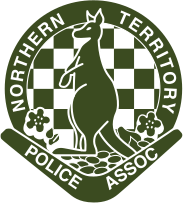 03 Apr 2022
03 Apr 2022
NTPA: Northern Territory Police Association
All Australian Police jurisdictions have Police Unions who provide Industrial Relations, Financial and in some state’s welfare and mental health support and services. Assistance for issues relating to workers compensation, legal matters, necessitous circumstances, and career transition may also be available through your state union. Associate membership for former officers is another way to stay connected to support and services post policing.
 03 Apr 2022
03 Apr 2022
PANSW: Police Association of New South Wales
All Australian Police jurisdictions have Police Unions who provide Industrial Relations, Financial and in some state’s welfare and mental health support and services. Assistance for issues relating to workers compensation, legal matters, necessitous circumstances, and career transition may also be available through your state union. Associate membership for former officers is another way to stay connected to support and services post policing.
 03 Apr 2022
03 Apr 2022
PASA: Police Association of South Australia
All Australian Police jurisdictions have Police Unions who provide Industrial Relations, Financial and in some state’s welfare and mental health support and services. Assistance for issues relating to workers compensation, legal matters, necessitous circumstances, and career transition may also be available through your state union. Associate membership for former officers is another way to stay connected to support and services post policing.
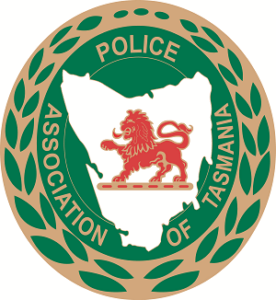 03 Apr 2022
03 Apr 2022
PAT: Police Association of Tasmania
All Australian Police jurisdictions have Police Unions who provide Industrial Relations, Financial and in some state’s welfare and mental health support and services. Assistance for issues relating to workers compensation, legal matters, necessitous circumstances, and career transition may also be available through your state union. Associate membership for former officers is another way to stay connected to support and services post policing.
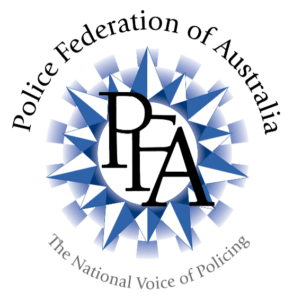 03 Apr 2022
03 Apr 2022
PFA: The Police Federation of Australia
All Australian Police jurisdictions have Police Unions who provide Industrial Relations, Financial and in some state’s welfare and mental health support and services. Assistance for issues relating to workers compensation, legal matters, necessitous circumstances, and career transition may also be available through your state union. Associate membership for former officers is another way to stay connected to support and services post policing.
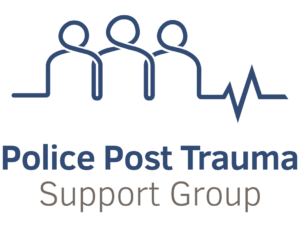 03 Apr 2022
03 Apr 2022
Police Post Trauma Support Group Inc (NSW)
Peer to Peer trauma support and referrals for NSW serving and former police and their families, monthly face to face meetings, crises intervention, chaplaincy, and spouse support services via an independent non for profit charity. Financial support is also available for necessitous circumstances and to attend mental health programs for those police and families without insurance cover.
 17 Nov 2021
17 Nov 2021
Police Wife Chronicles
Police Wife Chronicles based in NSW reaches out to female partners of police via regular blogs and information about living with a loved one who works in policing.
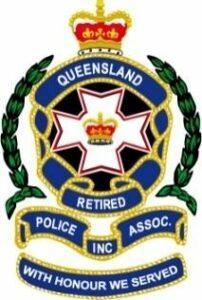 03 Apr 2022
03 Apr 2022
Qld Retired Police Association Inc.
Staying connected to the police family by joining your local retired and former police association may be helpful in maintaining social connection and positive mental health outcomes. Each state jurisdiction has a retired and former police association where regular monthly meetings and social events assist with staying in touch with former colleagues.
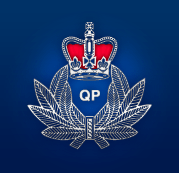 03 Apr 2022
03 Apr 2022
QPCOUE: Queensland Police Commissioned Officers Union
All Australian Police jurisdictions have Police Unions who provide Industrial Relations, Financial and in some state’s welfare and mental health support and services. Assistance for issues relating to workers compensation, legal matters, necessitous circumstances, and career transition may also be available through your state union. Associate membership for former officers is another way to stay connected to support and services post policing.
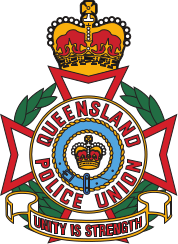 03 Apr 2022
03 Apr 2022
QPU: Queensland Police Union
All Australian Police jurisdictions have Police Unions who provide Industrial Relations, Financial and in some state’s welfare and mental health support and services. Assistance for issues relating to workers compensation, legal matters, necessitous circumstances, and career transition may also be available through your state union. Associate membership for former officers is another way to stay connected to support and services post policing.
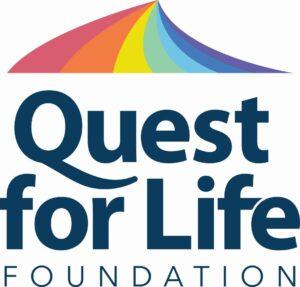 22 Sep 2021
22 Sep 2021
Quest for Life Foundation
Located at Bundanoon in the Southern Highlands of NSW, the Quest for Life Centre conducts monthly 5 day residential moving beyond trauma programs as an alternative for police living with trauma to hospital inpatient care. Programs provide educational person-centered education via a holistic approach based on the neuroscience of the brain and the latest evidenced based holistic health and healing modalities. An immersive 4 week Healing Trauma program is due to commence in late 2022. Programs such as the Healing your Life, living with cancer, loss after the suicide of a loved one, living with a brain injury or aging related illness are suitable for family members. Outreach programs are also conducted throughout NSW.
Relationships Australia
Relationships Australia provide a number of national services Australia wide to families, individuals and communities requiring support with relationships which may include, counselling, family support, domestic violence where they require assistance with safety and trauma, services for children and young people as well as services for older Australians looking for assistance with health, safety and wellbeing.

 Exit
Exit





